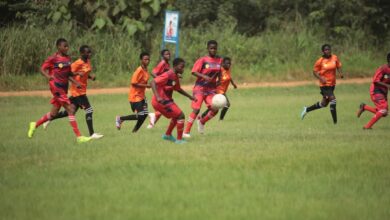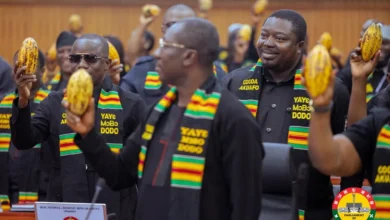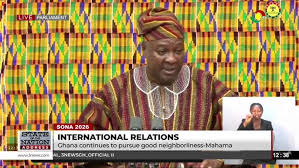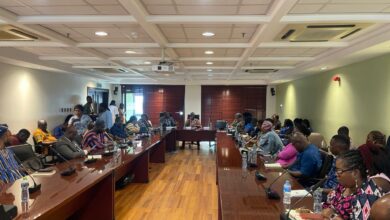Leading the Sanitation Revolution: Who becomes the 2025/2026 Child Sanitation Diplomat?
Leading the Sanitation Revolution: Who becomes the 2025/2026 Child Sanitation Diplomat?
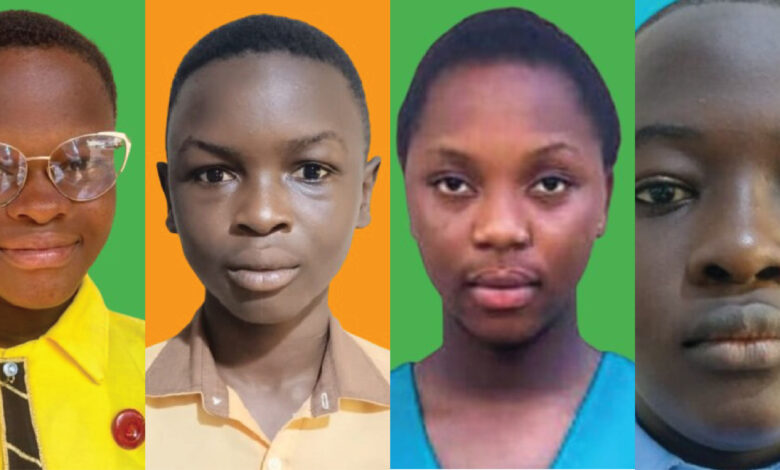
For generations, the sanitation challenge in Ghana was seen as a problem for adults to solve. But now, children are the most powerful voices in the fight for a cleaner and healthier environment.
Sanitation is vital to health, socio-economic advancement, and child wellbeing. Unfortunately, the world is alarmingly off track to deliver sanitation for all by 2030 (UNICEF). Despite the modest progress, two (2) billion people still lack a basic sanitation service.
To sustain improvements in environmental sanitation, it is important to shape the public discourse by reawakening the national consciousness towards a cleaner, healthier, and more prosperous society.
The School Sanitation Solutions Challenge, commonly referred to as the Triple S challenge, comes in handy by including children while shaping public discourse.
To this end, the Triple S challenge, which comes in the form of a competition, has been organised annually since 2020 for basic school pupils, from Class six to JHS two, on sanitation.
This innovative program, spearheaded by World Vision Ghana (WVG) and its partners, seeks to influence children to become sanitation-conscious and agents of change, challenging them to co-create sustainable solutions to sanitation challenges around them.

The Process
The Challenge begins with the annual official launch with media and multi-stakeholder presence.
Other stages in the challenge include the following:
✓ Publication of an essay topic on environmental sanitation and waste management, and an invitation to submit entries as part of the COMMON CONTEST.
✓ Following the submission of entries, the scripts are marked by selected examiners and subject matter experts who select the best entries from each zone.
✓ Twenty qualified contestants are then invited to the MASTERS ENCOUNTER (round two) to defend their scripts and demonstrate basic understanding of environmental sanitation and waste management in Ghana before a Panel of Experts.
✓ At the MASTERS ENCOUNTER, the 20 contestants are then put into four zones of five contestants each (according to their regions), to face a panel of experts to demonstrate their advocacy and problem-solving skills, general knowledge, and understanding of environmental sanitation.
Four finalists are then composed of winners from the respective zones to compete in the BATTLE OF CHAMPIONS (Grand Finale) at the National Theatre in Accra as part of the National Children’s Sanitation.
Following the official launch of the 2025 edition of the Triple S challenge, which is the sixth in a row, about three (3) months ago in Accra, the challenge, which started with thousands of contestants in the common contest (round one), was grouped into four zones: Coconut, Tilapia, Cocoa, and Shea.
The Tilapia Zone comprised contenders from basic schools within the Greater Accra, Oti, and the Volta regions, while the Coconut Zone is made up of basic schools from the Central, Western, and Western North regions.
The Cocoa Zone comprised contenders from basic schools within the Ashanti, Bono, Bono East, Eastern, and Ahafo regions, and the Shea Zone is made up of basic schools within the Northern, North East, Savanna, Upper East, and Upper West regions
The 2025 Finalists
The four (4) contestants who have qualified for the Battle of Champions, each from the four zones in the 6th School Sanitation Solutions Challenge 2025, and will be competing to become the next Child Sanitation Diplomat, are the following:
From the Coconut zone is Desiree Ohemaa Amponsah Duah, a 13-year-old Basic 8 pupil of the Asante Gold Bibiani Limited Basic School (AGBL) in the Bibiani Ahwiaso Bekwai Municipality in the Western North region.

The Tilapia zone is represented by Artaldus Sung Kuuntanaa, a 13-year-old basic 8 pupil of the Accra College of Education Demonstration School in the Greater Accra Region.

Ms. Emmanuella Kolbila, of Charis Christian Mission School, Walewale in the North East Region, is the Shea zone’s representative.

While Master Kwabena Owusu Nyarko of Yiadom Boakye Demonstration School “B” located in Berekum in the Bono Region represents the Cocoa zone.

From timid students to national advocates
The stories of the previous Child Sanitation Diplomats are a testament to the program’s transformative power.
Miss Neriah Tettey, the then 12-year-old JHS one pupil from Silicon Valley International School, Ofankor in Accra, won the maiden edition of the Triple-S Challenge in 2020/21.
She was supported by the organizers to embark on a series of sensitization activities through mainly the mass and social media, while she was invited as Special Guest to present an address at a couple of sanitation-related forums, including the prestigious Mole WASH Conference.
She also undertook peer sensitization visits to a few schools in the Ashanti Region. Her core message centered on ending open defecation and using household toilets.
She also used the mass media, posters, and social media to speak against indiscriminate littering and called for waste separation at source to facilitate waste recycling. She especially called on children to insist on having access to household and school toilets.
Then came Mawadatu Naziru, affectionately called Mawada, from the Damongo Girls Model School, after winning the 2021/22 edition, which operated more in the Savannah Region.
She embarked on high-profile visits to carry out her advocacy messages. The high-profile personalities she visited include the Overlord of the Gonja Kingdom, the Yabonwura, the Savannah Regional Minister, and the Regional and District Directors of Education in the Savannah Region.
She also visited the Municipal Chief Executive and the District Director of Education. Mawada also used social media, radio, and TV interviews to share some of her core advocacy messages, especially through short videos circulated through WhatsApp and YouTube.
She also formed a four-member video discussion panel on sanitation issues, where she served as the host and published the discussions on YouTube.
The 2021 Child Sanitation Diplomat, 12-year-old Naziru Mawadatu from Damongo Girls Model School in the Savannah Region, is a testament to the program’s transformative power. Described as “a very timid person” before joining her school’s WASH club, Naziru found her voice and courage through advocacy.
After winning the Triple S Challenge, she went on to address high-profile officials, including members of Parliament and the Minister for Sanitation and Water Resources, on the urgent need for improved sanitation.
Her tenure yielded tangible results, including helping 10 communities achieve Open Defecation Free (ODF) status. Naziru’s journey from a quiet student to a confident public speaker proves that when given a platform, young people can rise to the occasion and exceed expectations.
A personal connection to a national problem
The campaign for improved sanitation is not merely an academic exercise for these young diplomats; it is deeply personal. For Maame Akua Ohenewaa Gyimah, the 2022 diplomat, the motivation came from the embarrassment and indignity of encountering open defecation.
Her ambition was fueled by a desire to ensure every child has access to a decent toilet.
After winning the competition, she immediately took action, calling on the then Ministry of Sanitation and Water Resources to build proper washroom facilities at her school, an appeal that resulted in the construction of two toilet facilities in her cluster of schools at Dahwenya, through the GAMA Sanitation and Water Project. A major highlight in Maame Akua’s campaign is when she was invited as the only child to participate and deliver a keynote address at the All Systems Connect global conference in the Netherlands in 2023, followed by another learning tour to Hungary and Austria the same year. Her advocacy shows that a child’s experience can spark a national conversation and mobilize resources for a critical cause.
The weight of a legacy
The Child Sanitation Diplomat doesn’t just hold a title; they carry the weight of a nation’s hopes for a cleaner future. Each diplomat passes the baton to the next, building on the legacy of their predecessors.
For instance, when the 2023 diplomat, Adjoa Gyakoa Appiah-Kubi, addressed the Annual Mole Conference, she did so with the authority of the children she represented, urging adults to be better role models by ending poor sanitation habits.
Similarly, the 2024 diplomat, Faraj Timtoni Wumbei, has committed to influencing his peers and community to improve hygiene practices.
He is leveraging the platform to engage with ministers and traditional leaders, reminding them that children are key stakeholders in solving Ghana’s sanitation problems.
Inspiring agents of change
The Child Sanitation Diplomat program demonstrates that a single person, no matter how young, can be an agent of change.
By empowering children to use their voices, the powerful initiative, birthed by World Vision Ghana and Kings Hall Media, and actively supported by the Ghana Education Service, the Ministry of Local Government, Chieftaincy and Religious Affairs, and the Zoomlion Foundation, is not just raising ambassadors—it is nurturing a new generation of leaders who are confident, knowledgeable, and committed to building a healthier and more sustainable future for their communities.
As of now, the battle lines are drawn, and the dust has settled. The Grand Finale / Battle of Champions of the 6th School Sanitation Solutions (Triple S) Challenge will be held on Monday, 22nd September, 2025, at the National Theatre, Accra, and so I ask, who wins the 6th edition of the Triple S challenge to carry the tag “2025 Child Sanitation Diplomat”? Will it be Desiree Ohemaa Amponsah Duah, Artaldus Sung Kuuntanaa, Emmanuella Kolbila, or Kwabena Owusu Nyarko.
By: Franklin ASARE-DONKOH,
The author is a WASH Advocate and National Organiser- Ghana WASH Journalists Network (GWJN)

